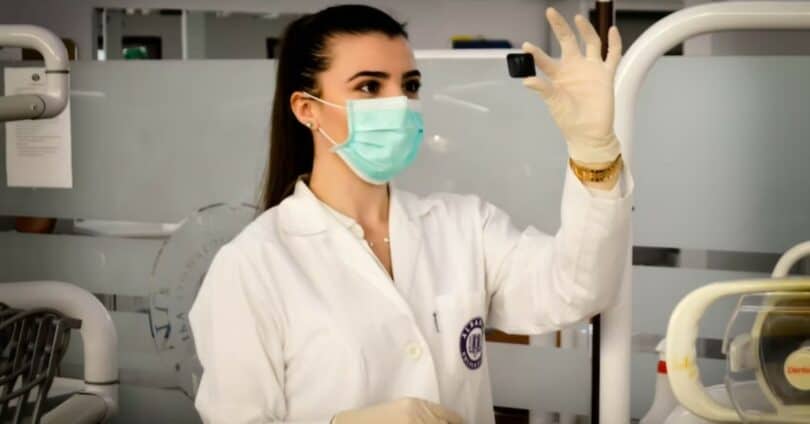Clostridioides difficile (previously known as Clostridium difficile) is an increasingly common and potentially life-threatening infection that can occur in people of all ages. It is responsible for more than half a million infections in the United States each year, resulting in approximately 15,000 deaths annually. We’ll explore what C. difficile is, who it affects most commonly, how to prevent it from happening, and what treatments are available if you do contract the infection. We’ll also look at some of the latest research into C. difficile so that you can stay informed about this ever-evolving pathogen.
What Is Clostridioides difficile?
Clostridioides difficile is a type of bacteria that can cause infection in the digestive tract (also known as colitis). The infection usually occurs after taking antibiotics, which disrupts the natural balance of “good” bacteria in the gut, allowing C. difficile to flourish and produce toxins. These toxins damage the lining of the intestine and lead to painful inflammation. In some cases, if not treated quickly and properly, serious complications can occur including sepsis or even death. This is why there are special C. Diff Precautions in healthcare settings where antibiotics are commonly prescribed. When someone is at risk of developing Clostridioides difficile, they should be put under special precautions to help prevent the infection from occurring.
Who Is Most At Risk?
The elderly and people with weakened immune systems are most likely to develop C. difficile infections. Additionally, people who have had recent antibiotic use or hospitalization may also be more susceptible as antibiotics can disrupt the balance of good bacteria in the gut that would otherwise protect against a Clostridioides difficile infection. For example, taking a broad-spectrum (“broad-acting”) antibiotic such as Clindamycin can increase the risk of Clostridioides difficile infection. If you’re a healthcare professional, you should be particularly mindful of the potential for C. difficile infections in hospitalized patients and those taking antibiotics. The best way to prevent infection is to practice good hygiene, such as washing your hands often with soap and water. Additionally, ensure that equipment and surfaces are properly cleaned and disinfected between uses.
- It’s also important to note that C. difficile can survive outside the body on surfaces like door handles and bedding, which means it can spread easily from person to person in healthcare settings. Therefore, proper safety precautions must be taken when caring for people who have been infected or may be at risk of infection. If there is any suspicion of a C. difficile infection, contact a healthcare professional immediately for proper diagnosis and treatment.
Prevention
The best way to prevent C. difficile is to use antibiotics judiciously and only when necessary. If you are prescribed antibiotics, make sure to take them according to your doctor’s directions and complete the entire course of treatment even if you start feeling better before the medication runs out. Additionally, good hand hygiene and proper cleaning techniques can help reduce your risk of exposure to C. difficile spores, which are what cause the infection in people who come into contact with them. And finally, it may be helpful for those at high risk to speak with their doctor about the prophylactic use of probiotics, which can help restore the balance of good bacteria in the gut and reduce the risk of infection. The four most important preventative measures are:
- Use antibiotics judiciously and only when needed – Why? Well, antibiotics can kill off the beneficial bacteria in your gut, making it easier for C. difficile to take hold.
- Make sure you complete the entire course of treatment even if you start feeling better before the medication runs out – Stopping a course of antibiotics early could lead to antibiotic resistance, meaning they may not be effective against future infections.
- Practice good hand hygiene and proper cleaning techniques – This will help reduce your risk of coming into contact with C. difficile spores, which are what cause an infection in people who are exposed to them.
- Speak with your doctor about the prophylactic use of probiotics – Probiotics can help restore the balance of good bacteria in your gut, which could help reduce the risk of C. difficile infection.
Treatment
To diagnose a C. difficile infection, a stool sample may need to be taken and tested for the presence of toxins associated with the bacteria. If the test comes back positive, then your doctor will likely prescribe antibiotics such as metronidazole or vancomycin to treat the infection. If you do contract C. difficile, your doctor may prescribe antibiotics such as Metronidazole or Vancomycin to eliminate the infection. In more severe cases, fecal microbiota transplant (FMT) may be an option to re-establish balance in the gut by introducing healthy bacteria from a donor’s stool sample into your body. While FMT is not recommended for everyone with C. difficile infections, it is successful in more than 80% of patients on whom it has been performed.
Latest Research
Researchers are continuing to study this disease to better understand it so that more effective treatments can be developed and preventive measures are taken. For example, a recent study suggests that probiotics could offer protection against C. difficile infections as they have been found to reduce the number of spores present on surfaces where bacteria grow or accumulate. Additionally, other research is looking into novel therapies such as bacteriophages (which are viruses that attack bacteria) and monoclonal antibodies (which target the toxins produced by C. difficile). When it comes to C. difficile, research is ongoing and the future looks promising.
Clostridium difficile can be a serious health threat, so it’s important to take steps to prevent and treat infections if they occur. To minimize your risk of developing an infection, use antibiotics only when necessary, complete the full course of treatment as prescribed by your doctor, practice good hygiene and cleaning techniques, and speak with your doctor about the possible prophylactic use of probiotics. If you suspect that you may have a C. difficile infection, contact your healthcare professional for diagnosis and appropriate treatment. With proper prevention and treatment measures in place, we can help reduce the spread of this potentially dangerous infection.









